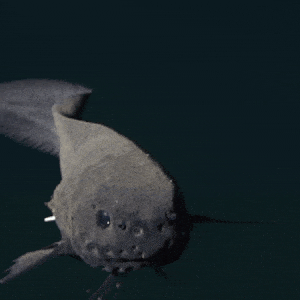Joyce Manor At The Regent Theatre In DTLA

Joyce Manor at The Regent Theatre in DTLA
More Posts from Invertebabe and Others

Knuckle Puck









Deep Sea Beauties




Blanket octopus (Joseph Elayani)
i love you gar.... my best friend gar
okay this a great post but they deserve more credit for their dumb lil brains!!!
They have short and long term memory, the ability to learn and solve complex problems! They even can switch tactics during said problem and work it out another way! Given multiple cognitive tasks they before pretty damn well!!!
They barely have a brain and can do all that!!! They deserve more credit for their hard work !!!!

Nautiluses. THIS goddamn animal.
The fundamentals of this design are HALF A BILLION YEARS OLD. Look at its weird eyes. It evolved back when eyes were still new. Those are literal pinhole cameras. Because nature invented photography the same way we did, apparently.
It doesn't have tentacles. Those are cirri, which lots of sea animals use to do all sorts of things. Fetal nautiluses have one giant slug foot that splits into these. They have noodle antennae made out of foot.
You can bring them up out of the ocean and they can survive the equivalent change of like 80 standard atmospheres. That shouldn't be possible. These things evolved a goddamn spacesuit...500 million years ago.
They also swim via jet propulsion. Their shells make them buoyant, which they can regulate, and they shoot water from a pump. So their 500 million year old spacesuit also has a goddamn rocket pack.
There have been 5 mass extinction events (we are causing a six one now). This thing has survived all of them. And it never got better eyes.
Or A BRAIN. That's right. This thing predates BRAINS. It has two separated lobes behind its top and bottom halves of beak that apparently work well enough that it can track smells with okay accuracy in total darkness, in 3 dimensions.
Here is one eating a dead fish.

Goddamn.


in my graduate school marine lab era

Sneaking out of the office early on a Friday like…
Deep-sea giant isopods use their 14 legs to tiptoe along the seafloor. When the need to move a little more quickly arises, they fan out their uropod and pleopods (their tail and swimming limbs) and paddle away. Either way, they’re getting a jumpstart on the weekend.

Deep Sea Threadfin Snailfish 🖤
These beauties live in depths of 1,080 - 2,365 m or 3,543 - 7,759 ft, although there have been some viewings of them above and below these parameters.
They are found in the Arctic, northeastern Atlantic, and northern Pacific oceans and grow to be about 31 cm or 12 in!
Meet the glass squids 🦑
Glass squids live in the boundless waters of the twilight zone. With no protective shell and nowhere to hide, they have to get creative.
Glass squids use an invisibility cloak to stay safe in these dark waters. Like other cephalopods, they are covered in tiny pigment sacs called chromatophores. When their chromatophores are closed, their skin is basically see-through.

When their cover is blown, they expand their chromatophores to darken their appearance. Or they might simply ink and jet away!
Glass squids also have special light organs that mask the shadow of their more opaque body parts. This helps them maintain their cloak of invisibility and hide from both predators and prey.

But the future of all midwater animals is in jeopardy. The deep seafloor contains many precious minerals critical to modern technologies—like the batteries in your phone. Mining these metals will release plumes of wastewater that will cloud the ocean's twilight zone.
We urgently need to identify the impacts deep-sea mining will have across all ocean habitats, from the midwater to the seafloor.

Help protect the glass squid by sharing what you've learned. Together we can build a community of ocean champions!
Learn more about this and other fascinating animals of the deep on our website.
-
 soundofdope reblogged this · 7 years ago
soundofdope reblogged this · 7 years ago -
 tea-mo liked this · 7 years ago
tea-mo liked this · 7 years ago -
 titlefxght reblogged this · 8 years ago
titlefxght reblogged this · 8 years ago -
 titlefxght reblogged this · 8 years ago
titlefxght reblogged this · 8 years ago -
 citzenofearth liked this · 8 years ago
citzenofearth liked this · 8 years ago -
 titlefxght reblogged this · 8 years ago
titlefxght reblogged this · 8 years ago -
 titlefxght reblogged this · 8 years ago
titlefxght reblogged this · 8 years ago -
 a-lonely-marshmallow reblogged this · 8 years ago
a-lonely-marshmallow reblogged this · 8 years ago -
 08s9 liked this · 8 years ago
08s9 liked this · 8 years ago -
 piratejenne liked this · 8 years ago
piratejenne liked this · 8 years ago -
 explosionshark reblogged this · 8 years ago
explosionshark reblogged this · 8 years ago -
 theearwaxxsessions-blog liked this · 8 years ago
theearwaxxsessions-blog liked this · 8 years ago -
 conjuringghosts reblogged this · 8 years ago
conjuringghosts reblogged this · 8 years ago -
 santasaguaro reblogged this · 8 years ago
santasaguaro reblogged this · 8 years ago -
 explosionshark liked this · 8 years ago
explosionshark liked this · 8 years ago -
 suburbanscum reblogged this · 8 years ago
suburbanscum reblogged this · 8 years ago -
 joyridenj-blog liked this · 8 years ago
joyridenj-blog liked this · 8 years ago -
 invertebabe reblogged this · 8 years ago
invertebabe reblogged this · 8 years ago

octopus biologist and artistex pop punk princessbio.site/invertebabe
91 posts